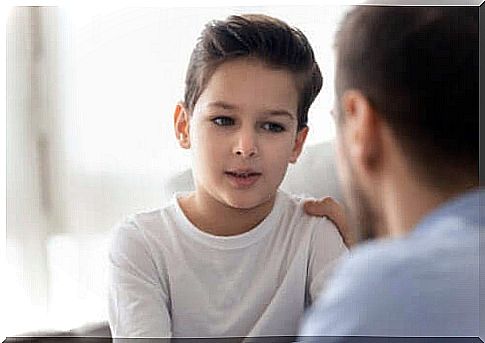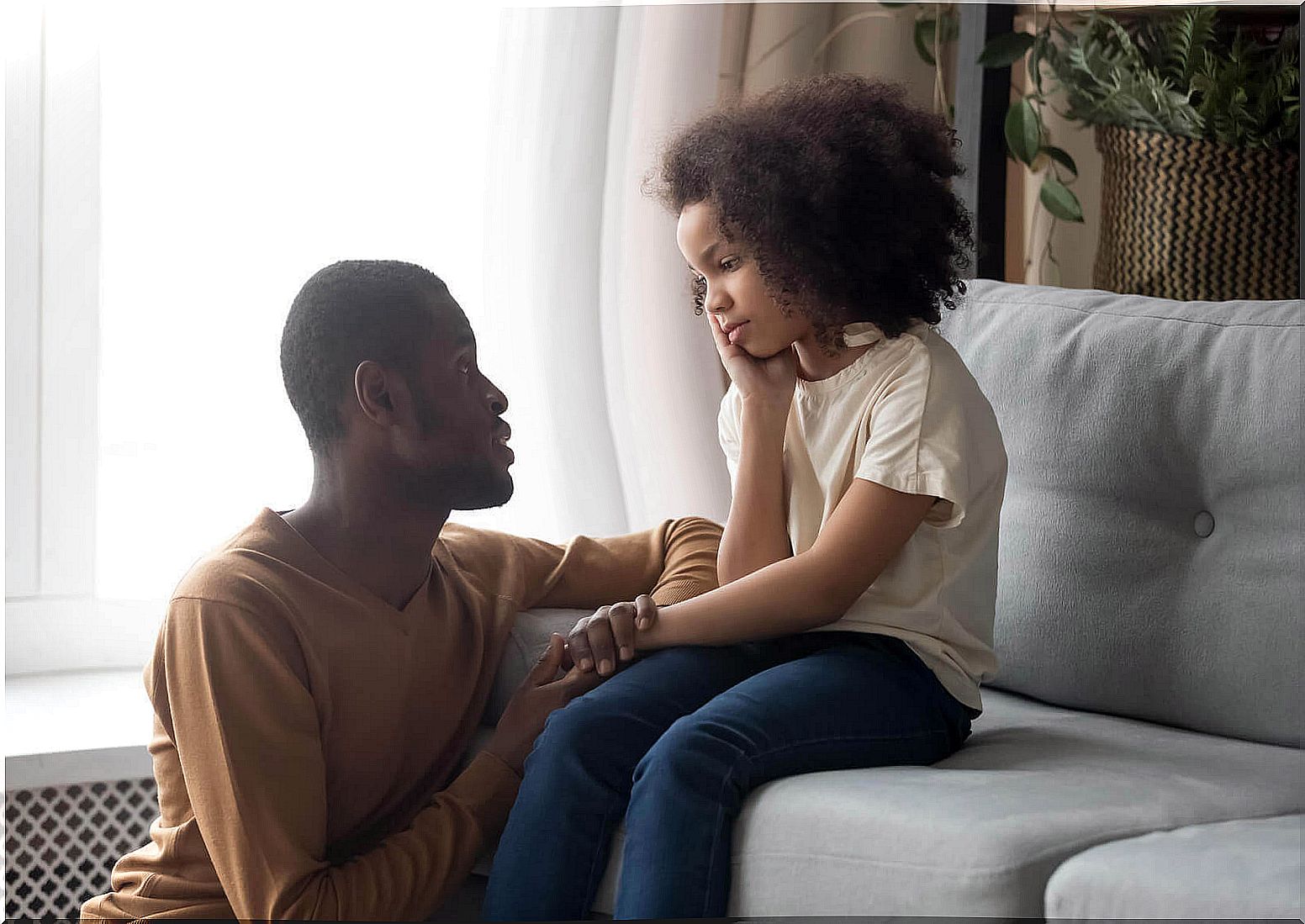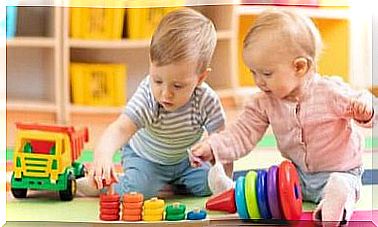Discipline With Empathy Not To Use The “time-out” Technique

All parents want their children to become good people, so they try to make their methods of discipline effective. Fortunately, discipline has evolved along with society and corporal punishment or punishment of “because I’m the boss” are no longer used as they are little more than proven. Therefore, it is important to understand the discipline with empathy so as not to use the “time-out” technique.
Now, the kindest and most considerate commands to children are considered better for them to understand the importance of good behavior. It is not necessary to apply the “time-out” technique for them to reflect on their own, as they need their reference adults to guide them in this reflection.
If done poorly, the “time-out” can make things worse for everyone. However, with a few simple adjustments, it can serve its purpose, making children and parents happier. So the next time you find yourself in a battle for “time-out,” consider this process to make things better.
Discipline with Empathy

First, try to stay calm
It can be difficult to seek calm when your child is throwing a big tantrum, crying on the floor, or angry and hitting things. The behavior of the little one is not acceptable, but it is neither calculated nor malicious. Quite the contrary: sometimes, picking up or hitting is the only tool a child has at hand to express how upset he is about something in particular.
Applying the “time-out” to this child who is already unhappy and distressed before he calms down after the initial disturbance will only make him feel even more confused and irritated.
In other words: your child may end up in total survival mode, which is totally unable to access the parts of the brain that can reason and completely unable to process any “use your words, not your hands” teaching that you are. trying to transmit.
Once your child has calmed down, you can take them aside and offer this teaching, not as punishment, but as a way to help them understand the consequences of their behavior.
Offer words for your emotions before the “time-out”
Children need to take vocabulary lessons and learn words from an early age. Having words that can be matched with the many new feelings they are having will help them learn to classify those feelings and later match them with the appropriate responses.
So start the conversation early: “I know it was very frustrating when you wanted that truck and you couldn’t get it” or “I see you are very disappointed because your block tower fell down” . Big words, yes, but for children those feelings are also very big. Giving them language validates these feelings, helping them to understand and respond appropriately as they grow.
Don’t confuse distraction with success
Children are always looking for ways to learn and grow. Distraction teaches nothing about behavior control. A successful “time-out” doesn’t end with your child saying he’s done wrong or apologizing that he’ll behave better next time.
Rather, it ends when your child calms down and you can talk about proper and healthy ways to express emotions. Being there when your child is most stressed will also create a sense of confidence that you will be there for them whenever they are stressed during the various stages of their growth, including the difficult teenage years. This is discipline with empathy.
In the discipline with empathy, set the stage for the future
Sometimes the little ones stop crying and say they calmed down so they can stop using the “time-out” because they got tired of feeling alone. However, once again, empathy will be your best tool. When the “time-out” is not used correctly, the child only learns that, when she needs you most, you leave her alone in a chair.
This will prevent your child from reaching out to you when they need help at other critical times, such as during adolescence, or when they feel sad, scared, or need help to calm down and deal with an uncomfortable situation.
Without your constant help, your child won’t know how to handle the emotional storm he feels, and he won’t learn to respond well to stressful situations. So, helping your child learn to regulate himself to calm down is necessary, but it’s not something that will happen a few times, as he will need you throughout his life.

Helping your child have the ability to “calm down” by providing appropriate words to describe their emotions will always be necessary. Your child needs to know that you will always be there and available, which will help him understand these strong feelings.
Disapproving of specific behavior and understanding emotions is the best gift a parent can give. Your child will know they can always look for you, no matter what.
Maybe you’re the one who needs some time
Finally, when your child is calmer, take a few minutes to think about your own reaction. Did you yell at him? Are you furious? In the wild whirlwind that occurs every time the creation of a child, the adults often need help to control.
If possible, step back and spend a few minutes alone. If you can’t, try to get the child interested in something else while you calm down and breathe. Then you can talk about what happened.
Remember, if you forget in the heat of the moment and find yourself in another battle for the “time-out,” that’s fine. Breathe deeply. You and your child are learning together.









